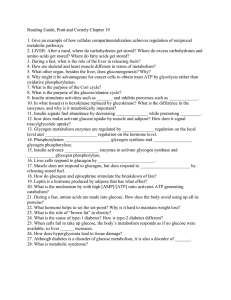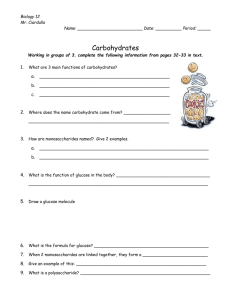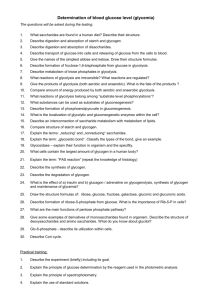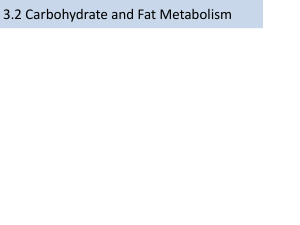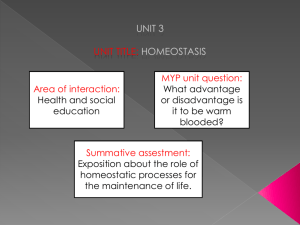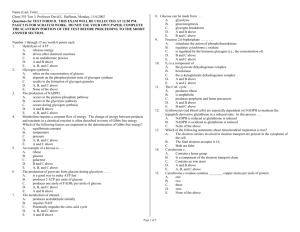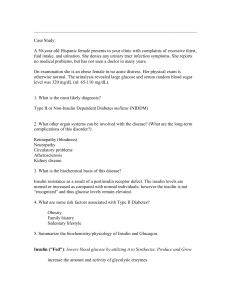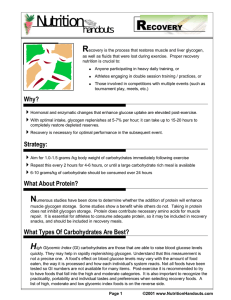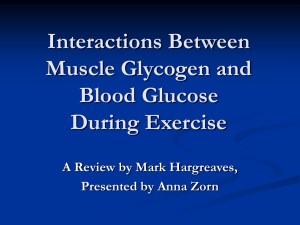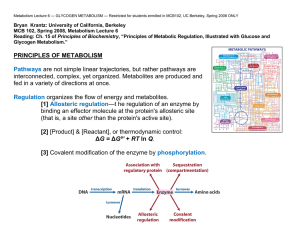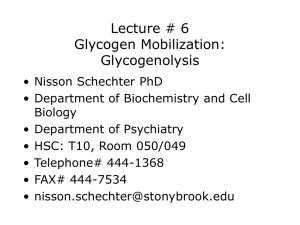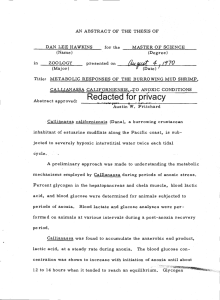3.2. METABOLISM OF MACRONUTRIENTS
advertisement
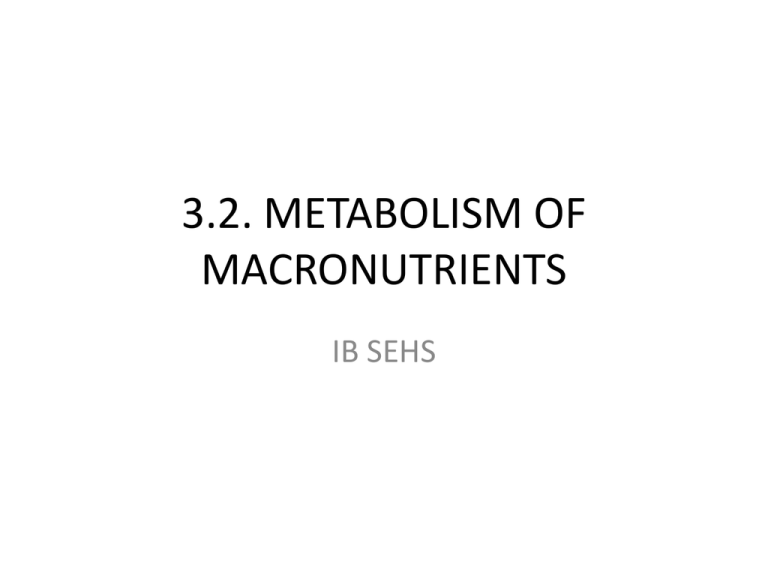
3.2. METABOLISM OF MACRONUTRIENTS IB SEHS Starter • Where do we get our energy from? • How do we save energy? Learning Objectives Everyone will be able to 1. Distinguish between metabolism, anabolism and catabolism. 2. State what glycogen is and its major sites of storage Energy metabolism Metabolism are all the biochemical reactions in living organisms required for the maintenance of life. There are two different phases: 1. Anabolism: Construction. Conversion of smaller molecules into larger ones. Requires Energy. Ex: glucose into glycogen. 2. Catabolism: Destruction. Larger molecules are converted into smaller ones. Release of Energy. Ex: Triglycerids convert to glycerol and fatty acids. Glycogen • Glycogen is the storage form of glucose. • Main storage location: Stored in the liver & skeletal muscle • Glycogenesis: Formation of glycogen out of glucose molecules linked. • Glycolysis: Glycogen is broken into pyruvate and ATP Metabolism of Glycogen Triglyceride storage • Make up 95 % of dietary fat • One molecule = One glycerol molecule + Three fatty acids • Main storage location: Adipose tissue & skeletal muscle • β- oxydation: Release of energy from breaking down fatty acids to acetyl CoA Hormonal regulation of energy metabolism • Hormones involved: Insulin, glucagon, cortisol and growth hormones. • Insulin role: After a meal, glucose in blood rises, pancreas secretes insuline from its βcells, which increases the transport of glucose into cells (muscle and liver) which promotes glycogenesis. Hormonal regulation of energy metabolism • Glucagon role: During fasting or exercise, glucose in blood decreases, glucagon secreted by α-cells from pancreas, promoting glycogenolysis and lipolysis for energy supply. • Adrenaline: Also increases with low glucose levels and also promotes glycogenolysis and lipolysis Muscle glucose uptake during exercise • Muscle contraction during exercise stimulates translocation of glucose transporters from inner cell into cell membrane, increasing the uptake of glucose from blood. • Insuline also stimulates glucose uptake from blood BUT DURING PHASES OF NO EXERCISE
